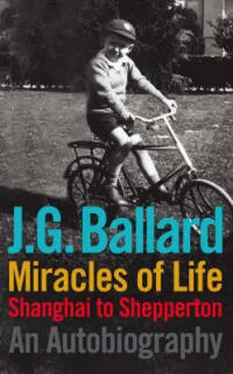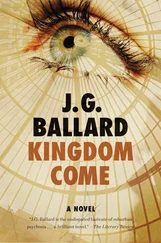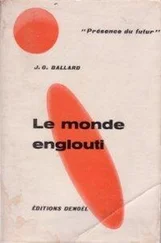The Bund was intact, the same vista of banks and trading houses still faced the Whangpoo river, crowded with ships and sampans. The Nanking Road seemed unchanged, Sincere’s and the great Sun and Sun Sun department stores crammed with Western goods. The racecourse was now an immense parade ground, the only visible trace of the authoritarian regime. I had hoped that we might stay at the former Cathay Hotel (now the Peace Hotel) on the Bund, a crumbling art deco palace. We later filmed a scene in the karaoke bar, where drunken Japanese tourists bellowed their way through Neil Diamond hits. But the Cathay, where Noël Coward had written Private Lives , lacked fax links to the outside world, and we moved to the Shanghai Hilton, a tall tower not far from the former Cathedral Girls’ School.
Memories were waiting for me everywhere, like old friends at an arrivals gate, each carrying a piece of cardboard bearing my name. The next morning I looked down at Shanghai from my room on the seventeenth floor of the Hilton. I could see at a glance that there were two Shanghais – the skyscraper city newer than yesterday, and at street level the old Shanghai that I had cycled around as a boy. The Park Hotel, overlooking the former racecourse and a vast brothel for American servicemen after the war, had been one of the tallest buildings in Shanghai, but was now dwarfed by gigantic TV towers and office buildings that stamped ‘money’ across the sky. The Hilton stood on the edge of the old French Concession, still today one of the largest collections of domestic art deco architecture in the world. The paint-work was shabby, but there were the porthole windows and marina balconies, fluted pilasters borrowed from some car factory in Detroit in the 1930s. Curiously, the TV towers, broadcasting the new to the people of Shanghai, seemed rather old-fashoned and even traditional, as seen everywhere from Toronto and Tokyo to Seattle. At the same time, the dusty and faded art deco suburbs were bracingly new.
I was due to rendezvous with Runcie and his crew at 9 a.m. in the Hilton lobby, but an hour earlier I slipped out of the hotel and began to walk the streets, heading in the general direction of the Bubbling Well Road. The pavements were already crowded with food vendors, porters steering new photocopiers into office entrances, smartly dressed young secretaries shaking their heads at a plump and sweating 60-year-old European out on some dishevelled errand.
And I was on an errand, though I had yet to grasp the true nature of my assignment. I was looking for my younger self, the boy in a Cathedral School cap and blazer who had played hide-and-seek with his friends half a century earlier. I soon found him, hurrying with me along the Bubbling Well Road, smiling at the puzzled typists and trying to hide the sweat that drenched my shirt. On the last leg of our journey from England, as we took off from Hong Kong, I worried that I had waited too long to return to Shanghai, and that the actual city would never match my memories. But those memories had been remarkably resilient, and I felt surprisingly at home, as if I was about to resume the life cut off when the Arrawa set sail from its pier.
But something was missing, and that explained the real nature of my breakfastless errand.
Shanghai had always been a European city, created by British and French entrepreneurs, followed by the Dutch, Swiss and Germans. Now, though, they had gone, and Shanghai was a Chinese city. All the advertising, all the street signs and neon displays, were in Chinese characters. Nowhere, during our week in Shanghai, did I see a single sign in the English language, except for a huge hoarding advertising Kent cigarettes. There were no American cars and buses, no Studebakers and Buicks, no film posters in twenty-foot-high letters announcing Snow White and the Seven Dwarfs, Robin Hood or Gone With the Wind .
Shanghai had forgotten us, as it had forgotten me, and the shabby art deco houses in the French Concession were part of a discarded stage set that was slowly being dismantled. The Chinese are uninterested in the past. The present, and a modest down payment on a first instalment of the future, are all that concern them. Perhaps we in the West are too preoccupied with the past, too involved with our memories, almost as if we are nervous of the present and want to keep one foot safely rooted in the past. Later, when I left Shanghai and returned to England with Runcie and the film crew, I felt a great sense of release. I had visited those shrines to my younger self, stood in silence for a few moments with my head bowed, and driven straight to the airport.
At 9 on that first morning we gathered in the Hilton lobby and then set off for the Ballard home in the former Amherst Avenue. The house was still standing, though in a state of extreme dilapidation, its gutters propped up by a scaffolding of bamboo poles that was in turn about to collapse. At the time of our visit the house served as the library of a state electronics institute, and metal book-racks filled with international journals and magazines had replaced the furniture on all three floors, a change that might have pleased my father. Nothing, otherwise, had changed, and I noticed that the same lavatory seat was in my bathroom. But the house was a ghost, and had spent almost half a century eroding its memories of an English family that had occupied it but left without a trace.
The next day we set off in our air-conditioned bus for Lunghua, and spent most of the morning trying to track it
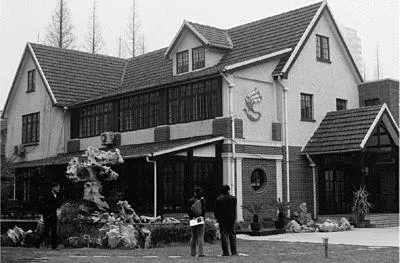
The former Ballard house in Amherst Avenue, Shanghai , in 2005. The fountain, garden sculpture and wall decoration are recent additions .
down. A vast urbanised plain stretched south from the Shanghai that I had known, a haze-filled terrain of flats, factories and police and army barracks, linked together by motorway overpasses. Now and then we stopped, and climbed to the roof deck of a workers’ apartment block, where I scanned the countryside for any sight of the water tower. Eventually, one of our translators hailed an old man dozing outside a bicycle shop. ‘Europeans, imprisoned by the Japanese…?’ He thought about this. ‘There was a camp – I don’t remember which war…’
Ten minutes later we arrived at the gates of the former Lunghua Camp, now the Shanghai High School. Almost
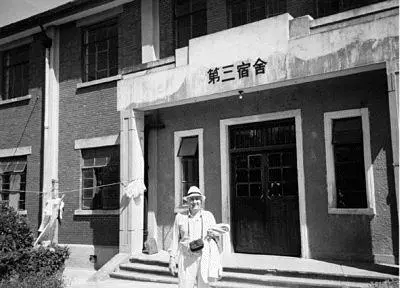
Standing outside the former G Block in 1991 .
The Ballard family room in the former G block . 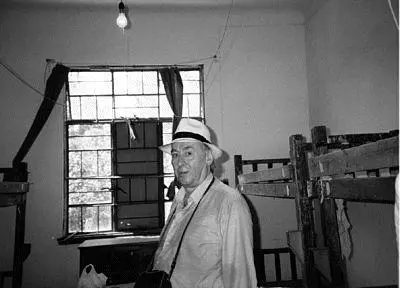
nothing remained of the original camp. The Japanese guardhouse, the dozen or more ruined buildings and the wooden huts had all been cleared away. New buildings had been built, and the old ones refurbished.
I wandered around the site for an hour, ignoring my camera but taking a thousand snapshots inside my eye. Everywhere trees had been planted shoulder to shoulder, as a result of some Maoist diktat in the 1960s. The children were away on holiday, and we were able to enter G Block. The Shanghai High School is solely for boarders, and all the rooms were locked except for the former Ballard room, which was now a kind of rubbish store. A clutter of refuse, like discarded memories, lay in sacks between the wooden bed frames, where my mother had read Pride and Prejudice for the tenth time, and I had slept and dreamed.
Lunghua Camp was there, but it was not there.
Читать дальше
